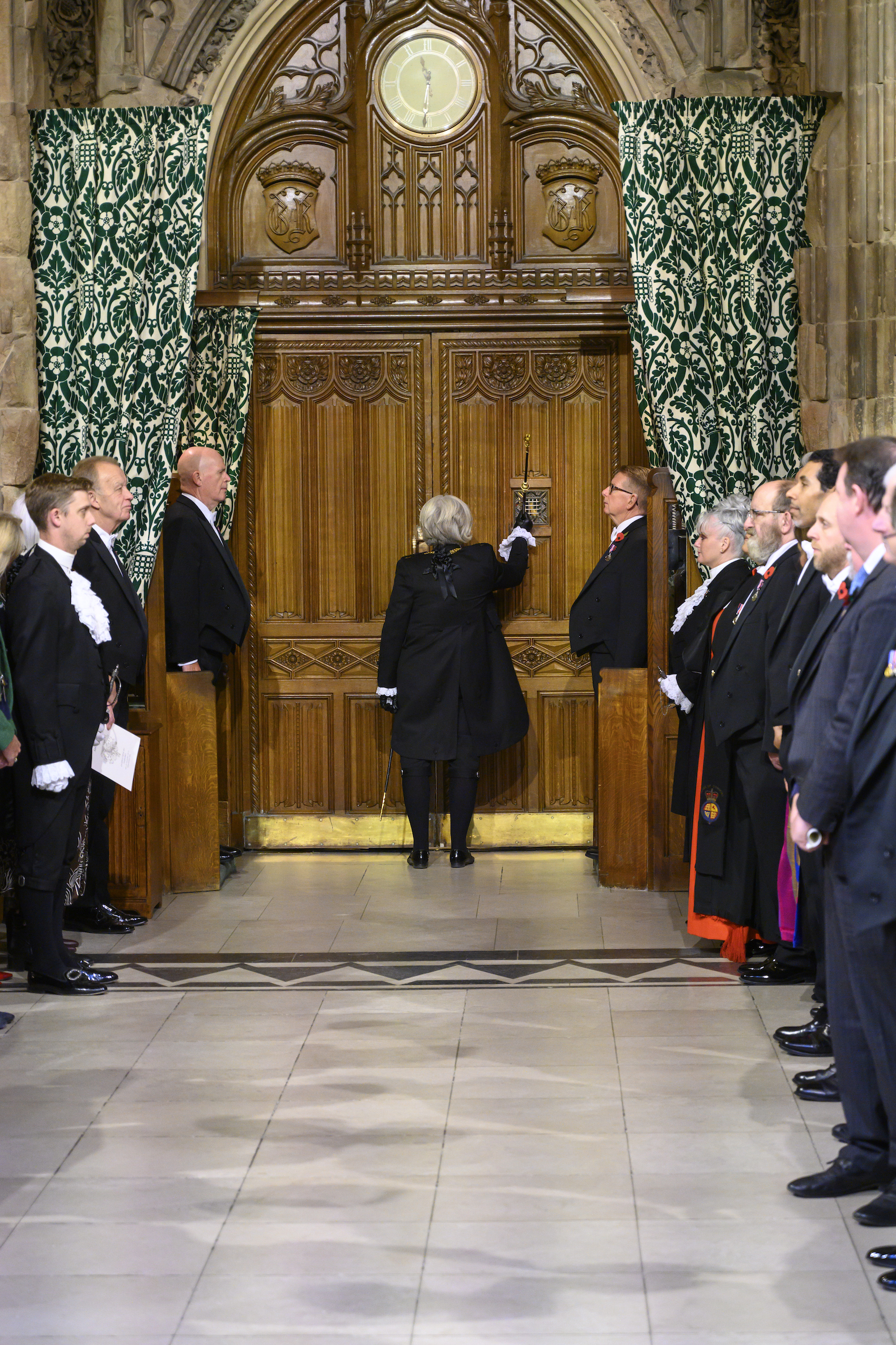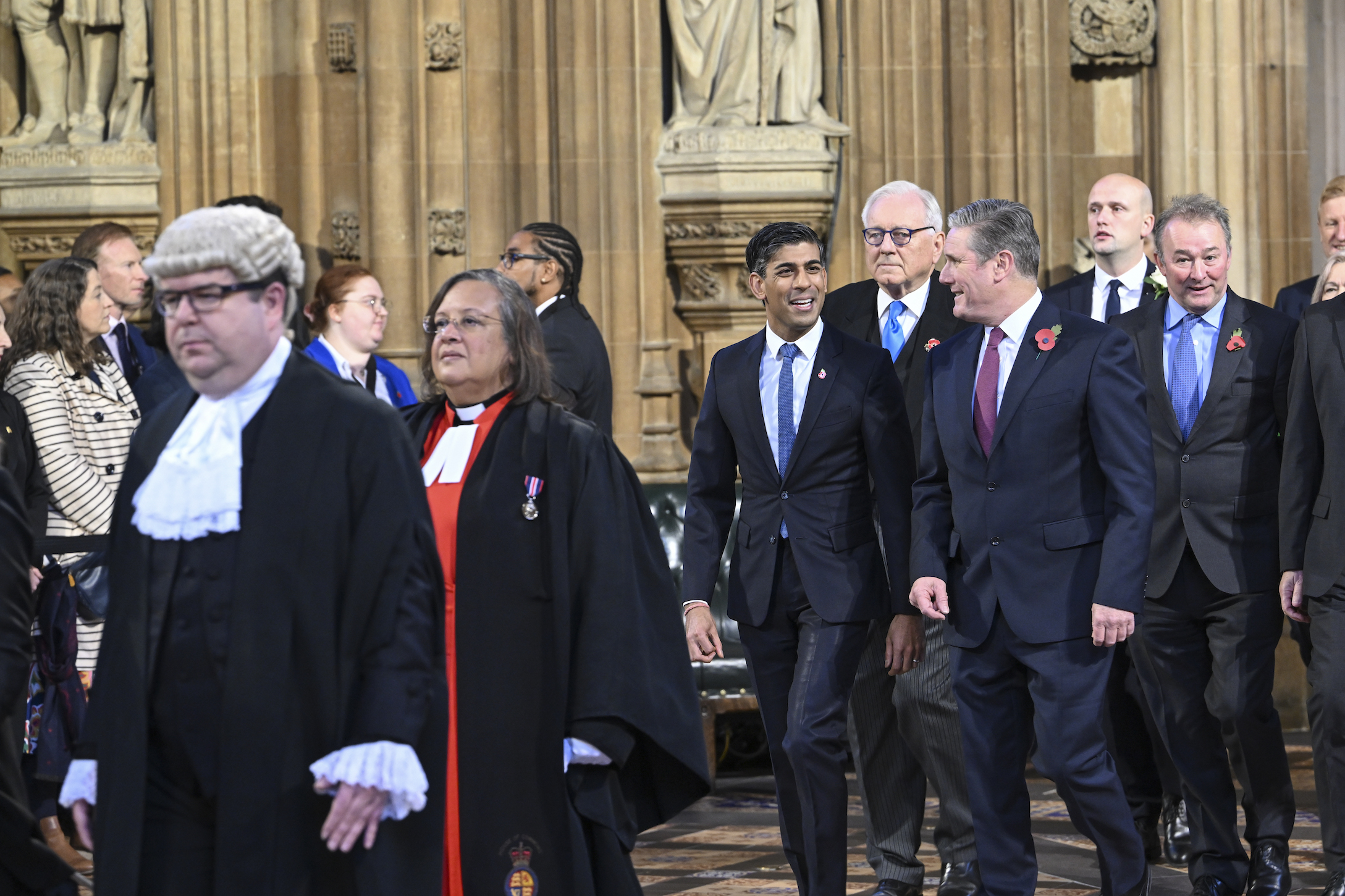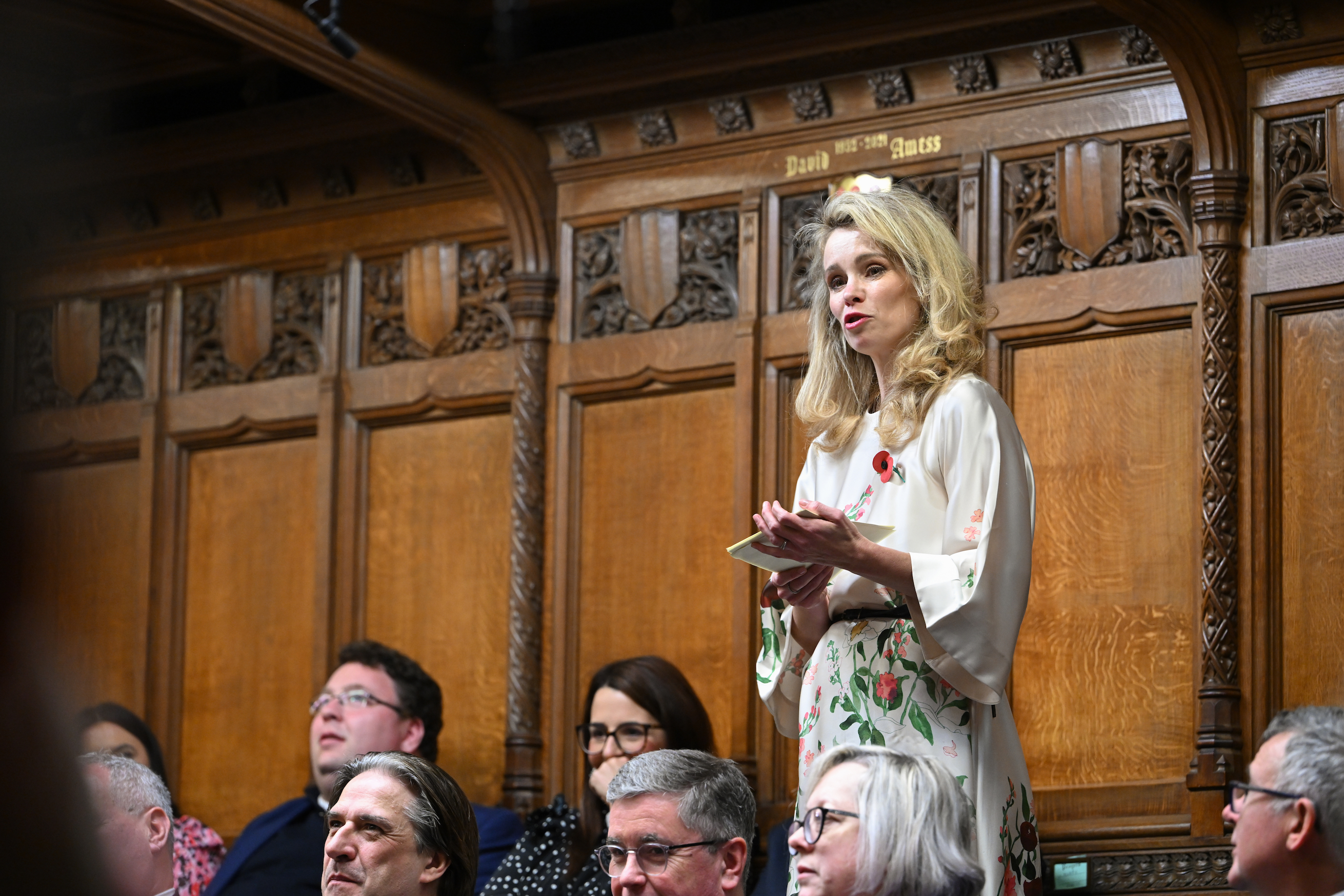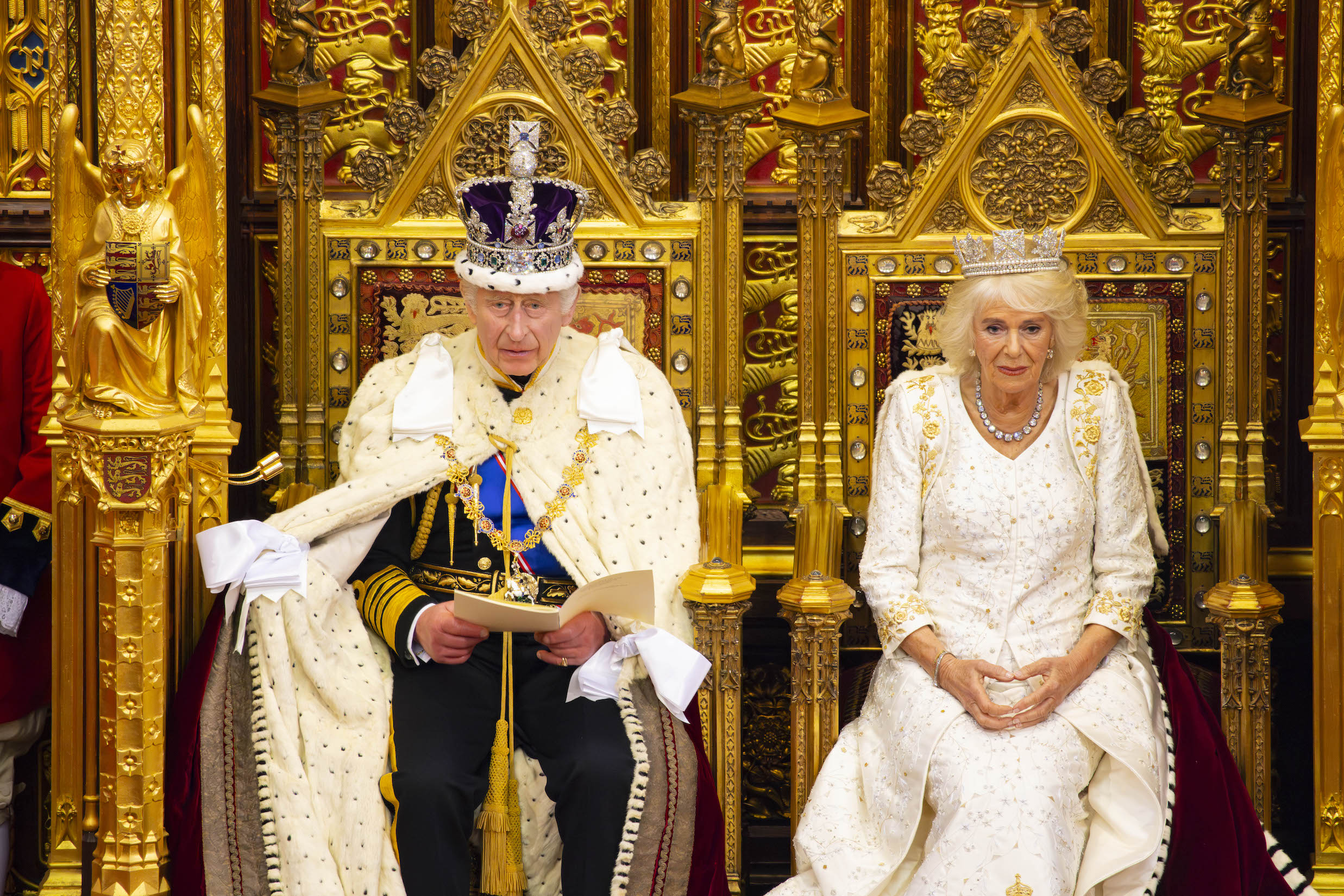King Charles III today outlined the 21 pieces of legislation that prime minister Rishi Sunak will focus on before the next UK general election.
Among the new announcements were legislation to encourage North Sea oil drilling, tougher sentencing for serious criminals and bills designed to show support for Israel.
A day of pomp and ceremony will now give way to weeks and months of intense political attacks as Sunak and Labour leader Keir Starmer seek to hone their pitches to the electorate.
Relive the key moments of the State Opening of Parliament, from its time-honoured traditions — some innocuous and others arcane — to the pointed political jousting…


Black Rod summons MPs
Before she could enter the House of Commons to “summons” MPs to hear the Speech from the Throne, Black Rod had the chamber doors slammed in her face.

Black Rod is a senior officer in the House of Lords, responsible for controlling access to and maintaining order within the House and its precincts. In full, her title is Lady Usher of the Black Rod.
As is tradition, the doors were slammed to symbolise the commons’ independence from the monarchy.
Sarah Clarke, who was appointed as Black Rod in 2017, then entered the commons after banging on the door.
Next, she addressed the chamber, inviting MPs to join peers in the House of Lords.
“Mr Speaker, the King commands this honourable House to attend His Majesty immediately in the House of Peers”, she said.
Charles III delivers the ‘Speech from the Throne’
After the Speaker led MPs into the House of Lords — to which they departed two-by-two, giving plenty of opportunity for idle chit-chat, they stopped before the “bar of the house”, a line beyond which they cannot venture.

The boundary means only a few dozen MPs are able to squeeze into the Lords chamber.
The Lord Chancellor and justice secretary, Alex Chalk, then walked to the Lords’ golden throne where the King was seated, presenting him with the speech written by the government.
King Charles III read the speech deadpan, offering no sign that he dissented from any aspect of the government’s new legislative agenda.
In total, the King’s Speech, divided under three headers — “strengthening society,” “growing the economy” and “keeping people safe, saw 21 new bills announced.
King Charles III began: “It is mindful of the legacy of service and devotion to this country set by My beloved Mother, The late Queen, that I deliver this, the first King’s Speech in over 70 years”
His Majesty continued: “My Government’s priority is to make the difficult but necessary long-term decisions to change this country for the better”.
Full list of the announced bills
MPs return to Commons as King’s Speech debate begins
MPs returned to the House of Commons at 2.30 pm to begin the debate over the King’s Speech.
The Debate on the Address normally lasts for five to six days, and the motion is phrased as: “An Humble Address” to His Majesty thanking him for his gracious speech.

The task of moving the motion is regarded as an honour and is given to two government backbenchers. They are typically a contrasting pair with different constituencies, one a relative newcomer and the other a long-serving Member.
Sir Robert Goodwill, who is standing down at the next election, proposed the “Loyal Address”. Siobhan Baillie, only an MP since 2019, acted as the seconder.
As is convention, their speeches were not contentious and contained both humour and flattering references to their constituencies.
But then it was the turn of the Leader of the Opposition who, after observing convention and congratulating the proposer and seconder of the Loyal Address, turned to the substance of the King’s Speech.
Keir Starmer declared: “Today’s address shows just how ridiculous [the government’s] posturing is because what we have before us is a plan for more of the same”.
He added that the government’s plan to grant new North Sea oil and gas licences every year is “wrong”.
“They are wrong about clean energy. It is cheaper, it is British and it can give us real security from tyrants like Putin”, he said.
Rishi Sunak responded by declaring the King’s Speech will “deliver change”.
The prime minister said: “And above all, this King’s Speech delivers change. Change in our economy. Change in our society. Change in our communities. It takes long term decisions for a brighter future. And I commend it to this House”.
Politics.co.uk is the UK’s leading digital-only political website, providing comprehensive coverage of UK politics. Subscribe to our daily newsletter here.

